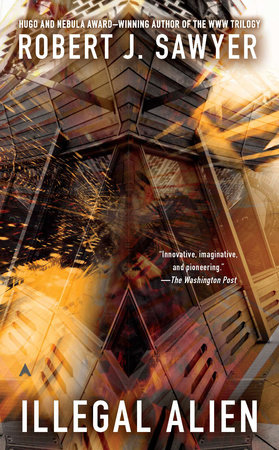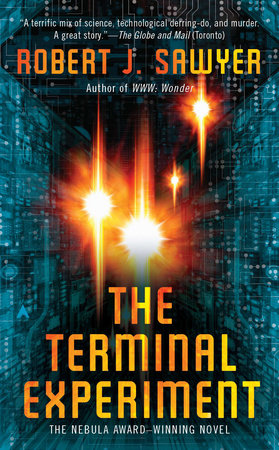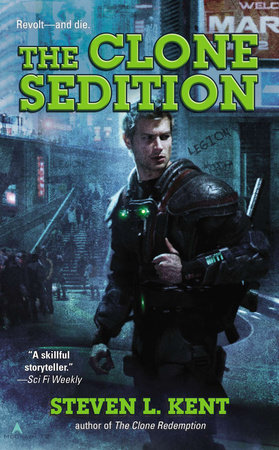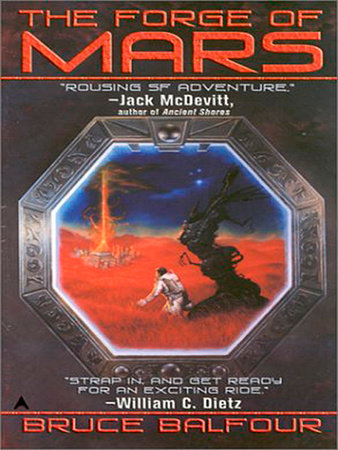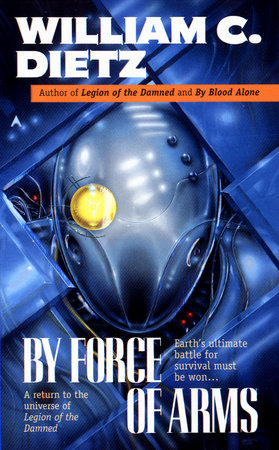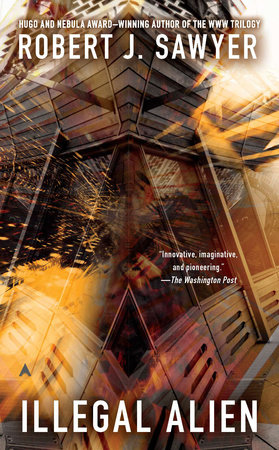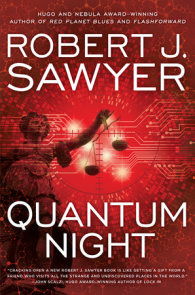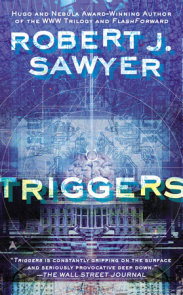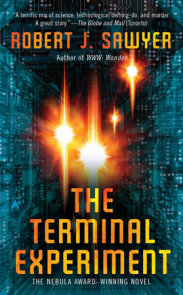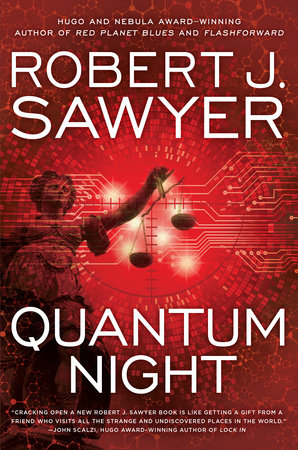One of my goals as a writer is to bring new readers into science fiction; I try to produce accessible books that can be enjoyed by longtime fans but also will appeal to those who have never read the genre before. Because of this, all of my novels for the last fifteen years have been set on Earth in the near future or the present day. The problem with that, of course, is that as time goes by, present–day novels become historical fiction, and the calendar catches up with the near–future ones. This year, Ace is reissuing two of my older novels. One, the Nebula Award–winning The Terminal Experiment, was first published in 1995 and was set in the then seemingly far–off year of 2011. The other, Illegal Alien, coming out again this month, was first published in 1997, and was set just two years later, in 1999. (I don’t actually say the date in Illegal Alien, but in it, a human astronomer shows visiting aliens one of the true wonders of our world: a total solar eclipse, with our moon perfectly and precisely blotting out the sun; Earth is quite likely the only inhabited world in our galaxy from which, coincidentally, the apparent diameter of the world’s sun and moon are identical. But astronomy buffs will recognize the eclipse, which my characters watch from a vineyard in France, as the one that took place on Wednesday, August 11, 1999.) Ginjer Buchanan, my wonderful editor at Ace, gave me the opportunity to revise both The Terminal Experiment and Illegal Alien, if I wished, for these new editions. The Terminal Experiment, about a biomedical engineer who discovers scientific proof for the existence of the human soul, is set against the backdrop of cutting–edge computing. Although I got many things right in that book (including predicting a decade in advance that the current Pope would take the name Benedict XVI), a lot of computing–related matters turned out differently than I’d thought they might. Neither I nor anyone else foresaw the current world of Google and Flickr, Facebook and Twitter, or Wikipedia and YouTube (although my latest novels, WWW: Wake, WWW: Watch, and WWW: Wonder, which deal with the World Wide Web gaining consciousness in the present day, do embrace our modern reality). I made a few gentle tweaks to the new edition of The Terminal Experiment, so that it wouldn’t seem too at variance with reality. But for Illegal Alien—a courtroom drama with an extraterrestrial defendant from Alpha Centauri—I decided not to update the text. I’d written the novel in 1995 and 1996, when the world was consumed with the O.J. Simpson murder trial (I even gave Simpson prosecutor Marcia Clark a cameo in the book); I set out to one–up the so–called “Trial of the Century” with my “Trial of the Centauri.” Leaving the book set in 1999 allowed one of my main characters to have lived through key points that echo throughout the narrative: During his sixty–seven years of life, Dale Rice had heard the name for what he was change from Colored to Negro to Black to African–American. When he’d been born, there were still people alive who had been called slave. Dale had been born in Montgomery, Alabama. He was a young man in 1955 when Rosa Parks was arrested there for refusing to give up her seat on a bus for a white man. In 1961, Dale had become a Freedom Rider, testing the Supreme Court’s order outlawing segregation in bus terminals. When the bus he was on pulled into Anniston, Alabama, a mob of white men with clubs, bricks, metal pipes, and knives was waiting. The bus was fire bombed, and as the black and white passengers escaped they were savagely beaten; it was during this fight that Dale’s nose had been broken. In 1963, he and two hundred and fifty thousand other people marched on Washington, D.C., and heard the Reverend Martin Luther King, Jr., give his “I Have a Dream” speech. Dale Rice had known King, and he’d known Malcolm X. He knew Jesse Jackson and Louis Farrakhan. There were those who called him the top civil–rights lawyer in the United States. Dale himself thought that was probably true; he also thought it very sad that after all this time the United States still needed civil–rights lawyers. To move the story of Illegal Alien forward to 2011 would have meant taking away Dale Rice’s past. And Dale would quite rightly exclaim “Objection!” if I’d tried to do that. For you see, no science–fiction book is really about the future. They’re all about the present—the specific present in which they were written. If one were to update H.G. Wells’s The Time Machine or The War of the Worlds so that they were no longer set in Victorian times, one would break the connection with what Wells was really talking about: the British class system as it then existed in the former case, and British colonialism in the latter. Likewise, in Illegal Alien, the fundamental issues at the heart of the book are whether celebrities get preferential treatment by the courts, and whether racism influences verdicts. Of course, opposing counsel might object that those issues are as relevant today as they were when I wrote Illegal Alien all those years ago. To which all I can say is, “Objection sustained.” But let us hope, as we continue to sail into the future, that it will not always be so.
